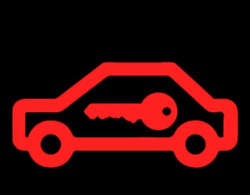
—
Hyundai and Kia theft lawsuits may not be in the news daily as they once were, but the automakers are still spending a fortune in courts battling lawsuits filed by cities across the country.
Dozens of class action lawsuits, individual lawsuits, wrongful death lawsuits and government lawsuits were filed against Hyundai and Kia after teenage criminals began breaking into and stealing model year 2011-2022 vehicles.
It appears the thefts began in Wisconsin when teenagers filmed the thefts, posted the videos online and “challenged” other teens to break into and steal the vehicles. Teens broke the windows, destroyed the steering columns, removed the ignition locks and started the vehicles with standard USB cables.
Called the “Kia Challenge,” teenage criminals across the country stole the vehicles typically for joyrides at high speeds. Every lawsuit claims the entire problem is caused by a lack of engine immobilizers.
But the automakers argued the problem was never caused by a lack of engine immobilizers because going back to 2011 the vehicles did not have immobilizers yet were not being stolen. In fact, the most stolen vehicles in the U.S. were equipped with engine immobilizers which didn’t stop criminals from breaking into and stealing the vehicles.
Hyundai and Kia argued the problem was caused by teen criminals who were following other teenagers. However, lawyers spread out across the country to convince cities to sue based on a lack of vehicle immobilizers. Instead of those cities admitting their own easily-influenced teens were involved in criminal activity, those cities sued Hyundai and Kia.
Due to the media attention, consumers believed the problem was caused by a lack of engine immobilizers on 2011-2022 Kia and Hyundai vehicles, so those consumers purchased 2023 models which came equipped with immobilizers.
This did nothing to prevent criminals from breaking the windows and destroying the steering columns, although it did make starting the vehicles a little more difficult.
State attorneys general demanded the National Highway Traffic Safety Administration force Hyundai and Kia to recall about 9 million vehicles to equip them with immobilizers. NHTSA investigated the vehicles and concluded there were no defects, and safety regulators pointed out how engine immobilizers are not required in the U.S.
Federal safety regulators told the state attorneys general no recall or other actions were required because federal safety regulations do not take into consideration the actions by criminals.
Specifically, NHTSA said federal safety standard 114 does not require an engine immobilizer as alleged by the attorneys general. In addition, safety regulators said, “the test procedure specified in that standard does not contemplate actions taken by criminal actors to break open or remove part of the steering column and take out the ignition lock to start a vehicle.”
NHTSA went on to tell the attorneys general where the real safety risk was regarding Hyundai and Kia thefts.
“Here, the safety risk arises from unsafe use of a motor vehicle by an unauthorized person after taking significant destructive actions to parts of the vehicle.” — NHTSA
However, even with the federal government placing the blame on teen criminals, dozens of lawsuits continued to blame Hyundai and Kia for the thefts.
The automakers were served dozens of class actions and decided to settle, although by denying all the allegations. Many of the settlement “benefits” were already being offered by Hyundai and Kia prior to the settlement.
The 94 Hyundai and Kia owners who sued received $1,000 each, and the lawyers representing vehicle owners received $13,403,485.60 in attorneys’ fees and $244,526.81 in expenses.
This put an end to some of the theft lawsuits, but lawsuits filed by cities are still in court.
In a June 10 ruling in California, a federal judge found Ohio law prevents negligence claims alleged by Cincinnati, Cleveland, Colombus, Lorain, and Parma.
Those cities claim that between 2011 and 2022, Hyundai and Kia “designed, manufactured, and distributed [certain] automobile models without engine immobilizers or other reasonable anti-theft technology.”
Because the vehicles do not have immobilizers, the five cities complain “online videos spread the ease of which thieves could steal Defendants’ vehicles, resulting in a dangerous rash of thefts” and a “vehicular crime wave [that] has had a significant impact on law enforcement operations, emergency services, and public.”
Although the judge dismissed public nuisance and negligence claims, the cities will be allowed to modify their lawsuit and refile the modified claims.
At nearly the same time, the U.S. Court of Appeals for the Ninth Circuit kept a lawsuit alive by sending a question back to the New York Court of Appeals.
Seventeen municipal entities located in seven states sued Hyundai and Kia blaming the automakers for vehicle thefts.
Those entities include the City of Buffalo; City of Cincinnati; City of Cleveland; City of Seattle; City of Rochester; City of Yonkers; City of Green Bay; Town of Tonawanda; City of Columbus; City of Kansas City; City of Indianapolis; City of Madison; City of Milwaukee; City of New York; City of Parma; City of St. Louis; City of Baltimore.
Five of those municipalities are located in New York and appealed to the Ninth Circuit regarding Hyundai and Kia vehicle thefts in New York.
The Ninth Circuit has certified the following question to the appeals court of New York:
“Did the Manufacturers owe the New York Municipalities a duty to exercise reasonable care in the design, manufacture, and distribution of their vehicles?”
And while a California court dismissed certain Ohio claims, the Ninth Circuit ruled the opposite and said Ohio and Wisconsin claims could move forward regarding negligence. A split appeals court found Hyundai and Kia were negligent for not installing engine immobilizers in the vehicles.
And in a perfect example of how the same laws can mean different things to different judges, one Ninth Circuit judge found the opposite and said, “negligence claims raised on appeal are preempted by federal motor vehicle safety standard 114 and would therefore not reach the state law issues.”

